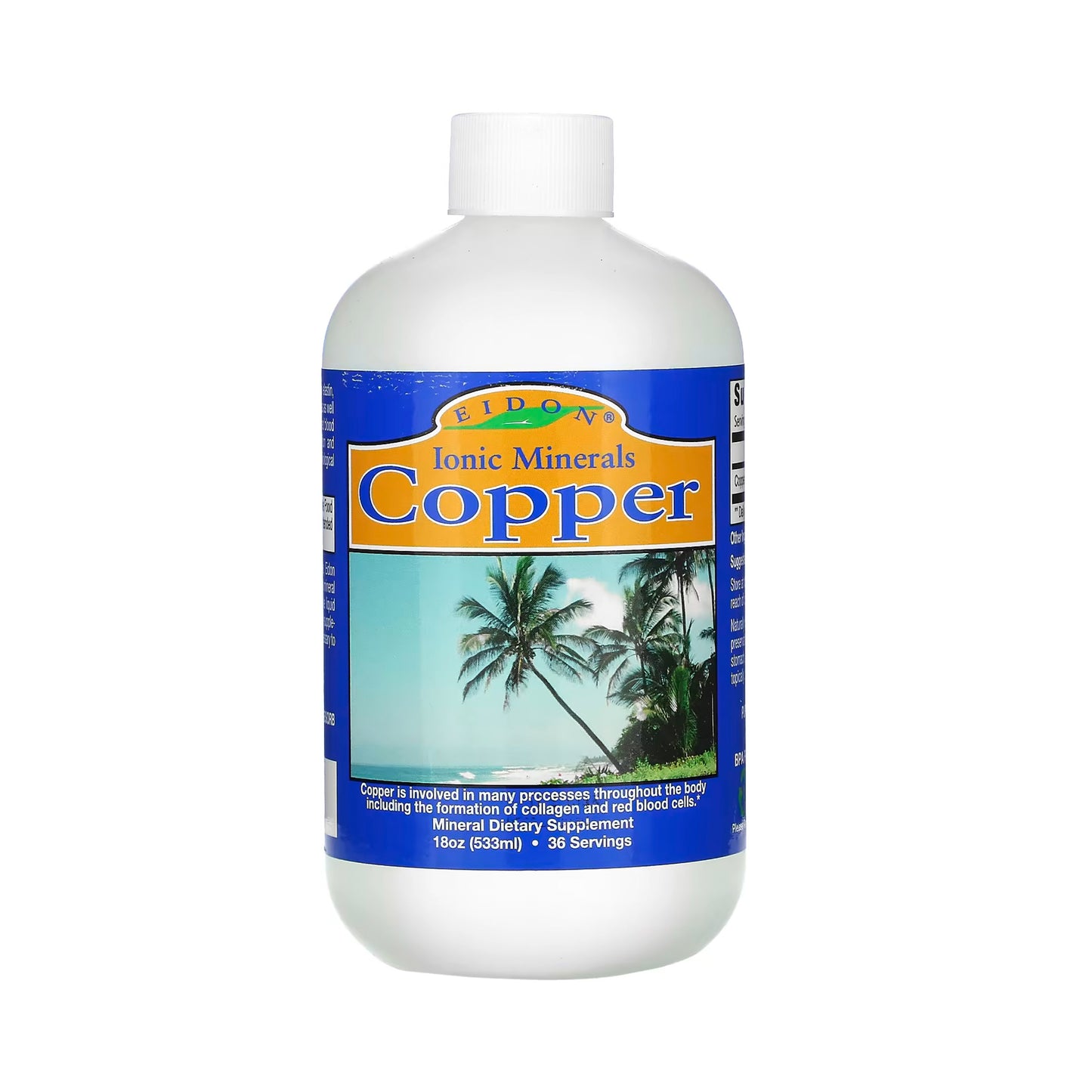Copper parallels iron. Iron is the essential element in hemoglobin. But, without copper, iron is not transported correctly throughout the body. Iron depends upon copper to become part of the red blood cells, therefore anemia results from a lack of iron and copper. The body can't metabolize iron without the help it gets from copper. As blood levels of copper drop, iron absorption decreases, red blood cell production is inhibited, and anemia develops.
Copper contributes to the structural integrity of connective tissue throughout the body. Collagen, the protein responsible for bone, skin, cartilage, and tendon elasticity, integrity, and strength, requires copper for proper reproduction. It is an important component of elastin (the connective tissue that gives elasticity to the blood vessels, lungs, and skin, allowing them to move and stretch with changes in pressure or movement). Because of copper's role in the integrity of connective tissue, even a marginal deficiency could potentially contribute to the onset of aneurysms.
Copper activates numerous enzymes and is involved in the development and maintenance of the cardiovascular system, the skeletal system and the structure and function of the nervous system.

